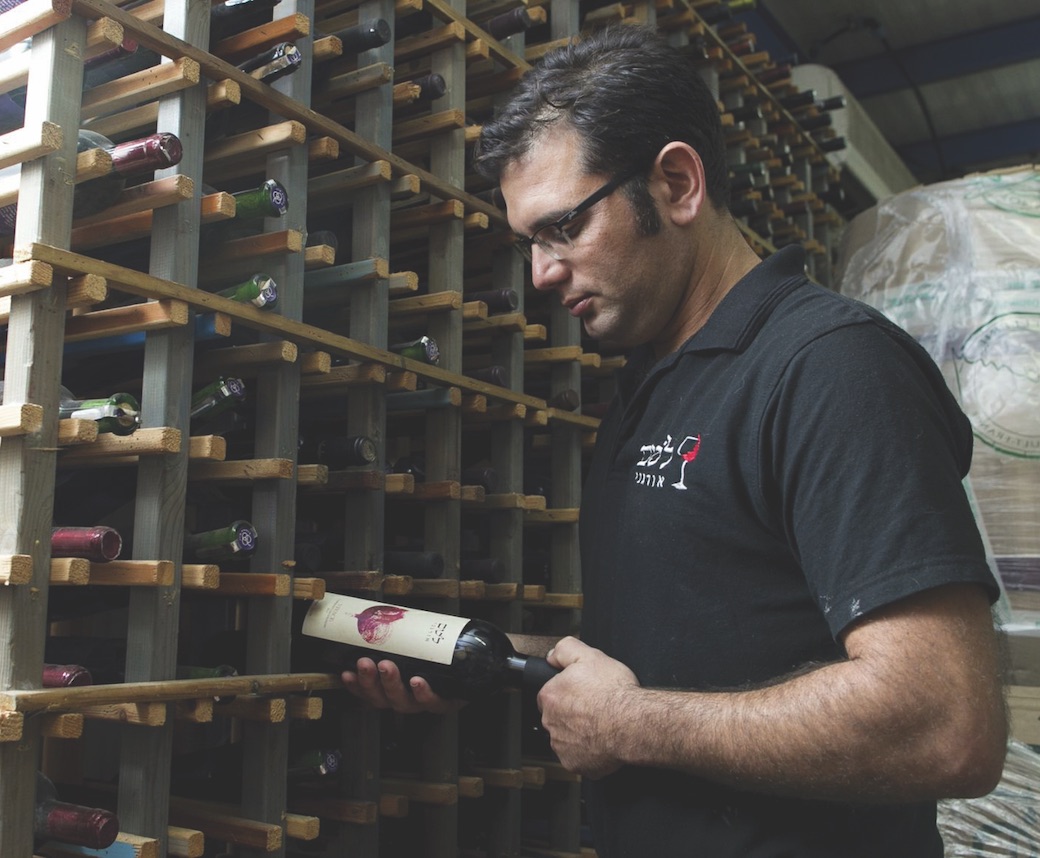
Kibbutz Lotem in Israel’s western Galilee is green, lush and tranquil. Birds chirp and trees sway in the breeze, but the first thing that strikes visitors after a long drive to stretch their legs and inhale the crisp northern air is how calm the place feels.
And then Yonatan Koren, a winemaker-philosopher who calls this place home, emerges from the Lotem Organic Winery like a manifestation of the tranquil earth itself.
Koren, 36, owns and runs the winery, one of only two fully organic wineries in Israel. This is his second life, one he’s been living happily since 2009. He closed the book on his first life, that of a career soldier in the Israel Defense Forces, after nearly 10 years in uniform and a persistent gnawing that it was time to do something entirely different.
Koren is seated at Lotem’s piece de resistance, a handsome open-air patio offering yawning views of the Galilee’s fertile hills and valleys. On a clear day, you can squint over your wine glass and see the sparkling Sea of Galilee in the distance.
“I knew my way in the army was very clear, but it also just didn’t look right to me,” he said. “So I said, ‘OK. You can turn right, and stay in the army. And the next 10 years is going to be exactly what you’re doing now. Or, you can turn left and open your world.’ And that’s what I did.”
Today, Koren and his business partner, Yaniv Kimchi, produce some 9,000 bottles of wine a year, coaxing a crisp rosé, an airy Nebbiolo and a rich Shiraz out of grapes grown without pesticides or fertilizers. To Koren, each bottle is a confirmation that when he left the army for this gentle, hushed life of tannins and tastings, he chose the correct path.
“When I finished the army, I decided I was going do what I love, and wine combined all of those things — agriculture, philosophy, creation, spirituality, working with people, working in nature, all of it,” he said. “It’s all there, inside a bottle.”
Lotem’s vineyards are in Tzivon, a kibbutz 30 minutes away in northern Israel that sits within spitting distance of the Lebanese border, but the real magic happens when the grapes are transported back to Lotem for fermenting. Once the wine is transferred into barrels for aging, it is treated to a full-fledged symphony of carefully curated new-age music tracks, mostly Indian, Peruvian and Arabian, all hand-selected by Koren and Kimchi based on energy and frequency, and piped in by speakers across the building.
Wine that has heard music, Koren said, has a different chemical connection than wine that has not. He’s tested the theory himself, placing two barrels of the exact same vintage in separate rooms and playing music for one for eight months while letting the other age in silence. In the end, a blind taste test confirmed for him his hypothesis — he found that the wine treated to a soundtrack was significantly tastier.
He knows that some people consider his tactics to be out there. “People sometimes look at me and say, ‘You are crazy, man!’ But in the end, if you learn about it deeply and seriously, it’s all about chemistry,” Koren said. “Sometimes we get angry or sad or happy, and this is all energy.
“[Music] works on us, just like it works on wine.”
There’s another rich ingredient that Koren, who grew up in the Negev, in southern Israel, adds to his wine — love for the place he now calls home, and the life he eked out for himself of the fertile earth of northern Israel.
“I always tell myself that if the day comes that I walk into the winery, go out to the balcony and don’t stop and say, ‘Wow,’ I will leave this part of the country,” Koren said. “But I don’t see that happening. Every day it’s a different view. There are amazing people here, Arabs and Jews and Christians all living together. Most of all, it’s a life that is simple.”
Debra Kamin is an American journalist living in Tel Aviv. She is a regular contributor to The New York Times Travel section, and her work has appeared in The Atlantic, Foreign Policy, Time magazine, Town & Country and Variety.





















 More news and opinions than at a Shabbat dinner, right in your inbox.
More news and opinions than at a Shabbat dinner, right in your inbox.